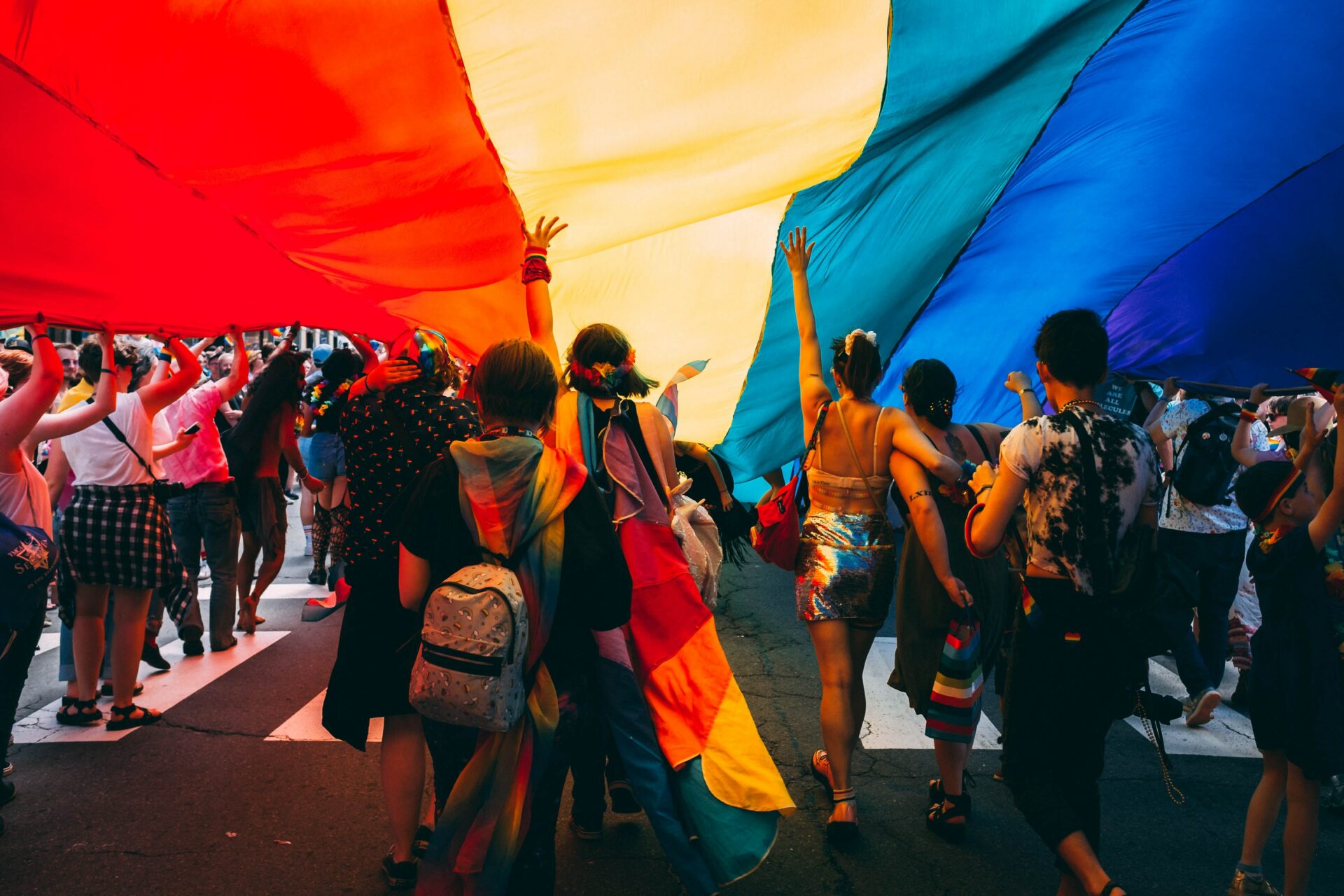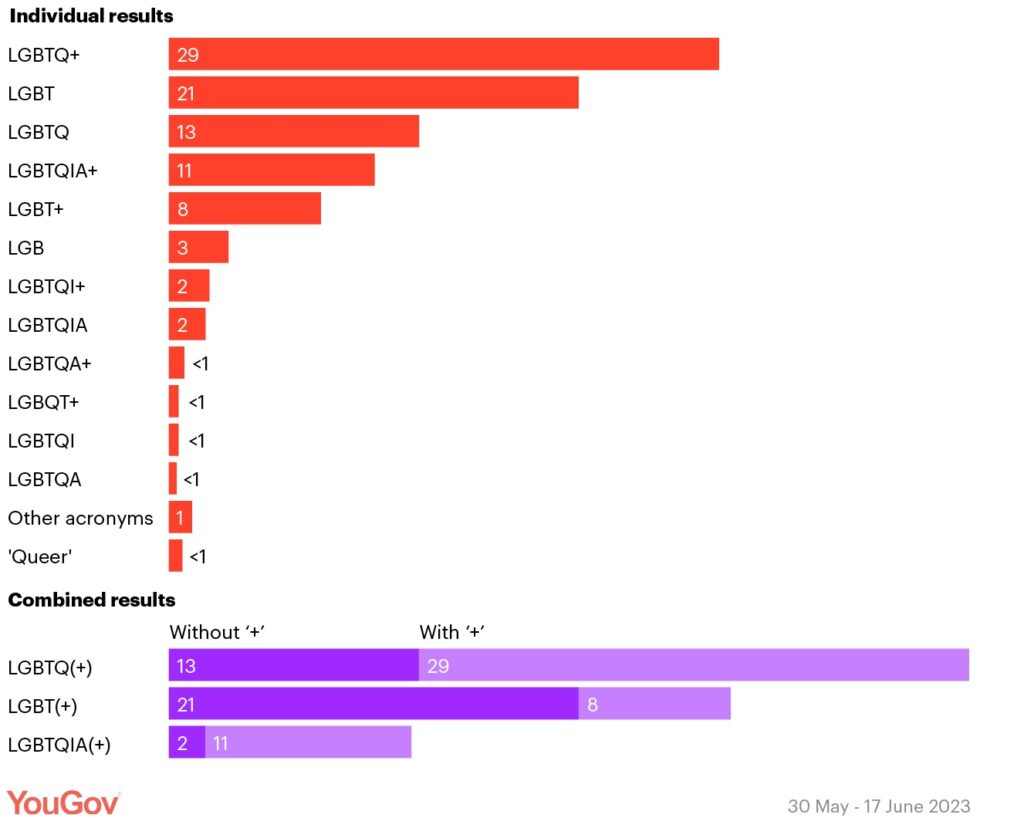LGBT, LGBTQ, LGBTQIA: Study reveals which acronym queer community prefers
Only 3% continue to use the original LGB acronym from the 1980s
By Dale Fox

A new survey has revealed that LGBTQ+ is now the most commonly used acronym among the UK’s queer community.
The research was conducted with 969 LGBTQ+ people in May and June this year by YouGov.
It asked respondents what term they would typically use to describe themselves.
The survey found that 29% of respondents use the LGBTQ+ acronym, representing lesbian, gay, bisexual, transgender, and queer/questioning. It said 41% of 16-24 year-olds favoured it.
The next most popular term is the simpler LGBT acronym, used by 21%, particularly among those aged 65+ (32%). YouGov says that this is also the most popular term used by UK media outlets.
Additionally, 13% use LGBTQ, while 11% prefer the more inclusive LGBTQIA+, encompassing intersex and asexual/aromantic identities. Only 3% continue to use the original LGB acronym from the 1980s.
It was also found that 6% of respondents either reject queer acronyms or find them inapplicable to them.
Usage evolving over time

The findings suggest that acronym use evolves over time, with younger queer individuals embracing more inclusive terms like LGBTQ+. Meanwhile, older generations appear to be sticking to simpler acronyms from their own coming-out eras.
Outside of this all-encompassing acronym, Stonewall has published a comprehensive list of terms to describe practically every facet of the community. These range from “Abro” – people who have a fluid sexual and/or romantic orientation which changes over time – to ‘grey’, ‘an umbrella term which describes people who experience attraction occasionally, rarely, or only under certain conditions.’
